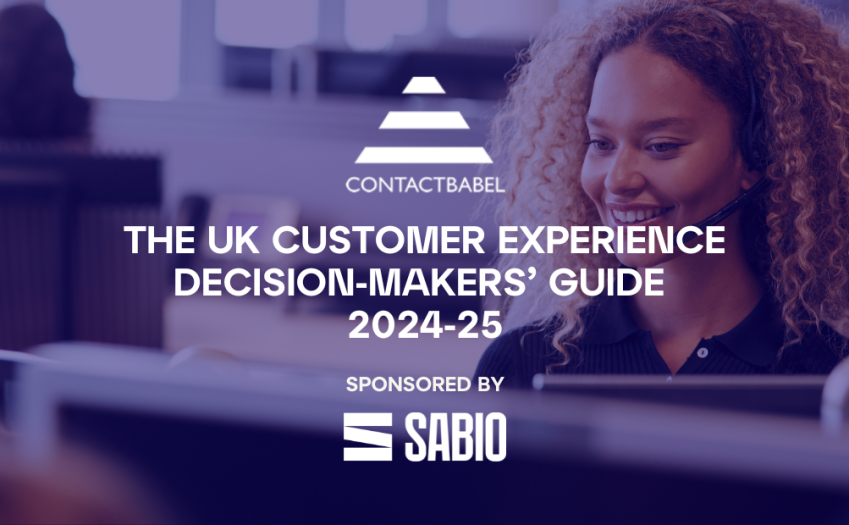Bridging the CX Gap: Key Insights from the UK Customer Experience Decision-Makers’ Guide 2024-25


We all know that customer experience (CX) can make or break a business – so for organisations looking to stay ahead of their competitors, consuming the latest trends and insights is crucial.
The recently released UK Customer Experience Decision-Makers’ Guide 2024-25, supported by us at Sabio Group, is a piece of research that offers a comprehensive look at the current state of the industry, as well as the strategies that are being adopted within it.
These invaluable insights have been collated from an extensive round of surveys conducted with CX specialists across the UK. Interestingly, one of the insights gleaned was that, while improving CX is high on the agenda for many businesses, most are still far from where they want to be.
I’ve taken some time to go through the 92-page report from Contact Babel following its recent publication. Below, I’ve highlighted some of the key findings and strategies suggested within it in a bit more detail…
- The Competitive Edge of CX
It might not be the most striking of revelations to kick us off, but although the report confirms that CX is still widely recognised as an increasingly important competitive factor by both B2B and B2C businesses – it does highlight a shift away from traditional price-based competition. Indeed, fewer respondents than ever indicated a willingness to compete primarily on price – so it’s clear that businesses are waking up to the fact that superior CX can be a powerful differentiator in crowded markets, no matter the cost.
- Balancing Cost Management and Customer Retention
While cost management remains a key aim of CX improvement programmes, the report highlights that improving customer retention rates is seen as an equally vital component. This dual focus suggests a growing understanding that investing in CX isn’t just about cutting costs — it’s about building lasting relationships that drive long-term profitability.
- The Technology/Human Balance in CX Investment
Interestingly, the main investments in CX improvement programmes are focused on technology, with business process improvements and employee training receiving similar levels of support. This balanced approach recognises that while technology can drive efficiency, the human element remains crucial.
- The Dominance of Live Telephony
Despite the rise of digital channels, live telephony remains the largest communication channel used by customers, comprising around 65% of inbound interactions. Email follows at about 20%, with web chat and social media showing strong growth. This persistence of traditional channels alongside digital options underscores the importance of omnichannel strategies that cater to diverse customer preferences.
Paradoxically, while telephony dominates customer interactions, the majority of CX investment is going into digital channels. This forward-looking approach suggests businesses are preparing for a digital-first future while still maintaining excellence in the traditional interaction routes.
Challenges in CX Technology Implementation
Many survey respondents feel CX technology is under-supported, often failing to provide a single view of customers across channels. Smaller businesses, in particular, reported being held back by legacy technology and inadequate budgets. This highlights the need for scalable, integrated CX solutions that can grow with businesses.
- Beyond Technology: Time and Resource Constraints
Importantly, technology isn’t the only roadblock to CX improvements and a lack of time and resources for CX initiatives was also cited as a significant challenge. This suggests that successful CX strategies must include effective resource allocation and prioritisation.
Key Factors in Positive Customer Experience
From a business perspective, the most important CX factors are first-contact resolution, short wait times, and having a polite and friendly agent answer the phone. Issues handled by a single employee are also seen as crucial and can be linked to first-contact resolution rates. Consumers largely agree, emphasising first-contact resolution and short wait times as key to a positive experience.
The Contact Babel UK Customer Experience Decision-Makers’ Guide 2024-25 provides a wealth of insights for businesses looking to enhance their CX strategies. By focusing on balancing technology investments with human-centric approaches, businesses can work towards bridging the gap between current CX capabilities and future aspirations.